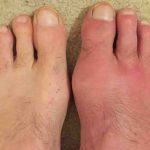Extreme Mood Swings
After an attack, you might notice that your overall mood changes. Those who suffer from Meniere’s disease commonly become wrought with anxiety, depression, and other shifts in mood, including irritability and fear. Mood swings are the byproduct of many things happening within the body, and they do not have to be directly caused by Meniere’s disease to result from a flare up.

The roller coaster of emotions and fluctuating energy levels are much more of a mental reaction to the disease than a physical one. You are going to be overcome with stress, fatigued, possibility nauseous and experiencing vertigo. Thus, it is understandable if your mood worsens throughout the day. It has also been found that many people who experience anxiety can not only cause flare ups but be produced after an attack ends.
There are ways to help manage your moods and anxiety levels to increase your quality of life with Meniere’s disease. Antidepressants can help. Such prescriptions are usually paired with complementary (holistic) therapies, lifestyle changes, and so on to keep you feeling energetic and optimistic.
More from Things Health
-
Lyme Disease Symptoms
Experts are suggesting that 2017 will be a bad year for ticks. Lyme disorder is propagated by deer ticks and is the result of a…
-
Symptoms Of An Ulcer
A peptic ulcer is an open sore in the top digestion tract. Both primary kinds of peptic ulcers, a gastric ulcer, which forms in the…
-
Symptoms Of Prostate Cancer
Cancer of the prostate affects more than 200,000 men each year in the US alone. Worldwide statistics for prostate cancer continue to grow tremendously, and…
-
Symptoms of Gout
Gout is a form of inflammatory arthritis characterized by recurrent attacks of a red, tender, hot, and swollen joint. Pain typically comes on rapidly in…
-
Symptoms Of Epilepsy
Epilepsy a neurological disorder marked by sudden recurrent episodes of sensory disturbance, loss of consciousness, or convulsions, associated with abnormal electrical activity in the brain.…






